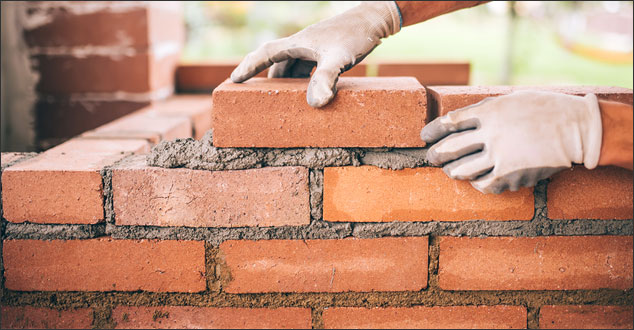Masonry can be considered one of the essential pillars in realizing different types of works. We have, among others, the new construction, the renovation works, and the external arrangement. Masonry work generally ranges from the beginning of the work itself to the final stage. In other words, from laying the foundation to the finishing touches or from the structural work to the finishing work.
The Structural Work
In general, the structural work in masonry is related to the foundations, sanitation, roofing, assembly of walls, etc.
The mason is the name given to the professional who practices masonry. Apart from the roofing work and the installation of specific equipment that constitutes the sewerage system, the mason will carry out the various structural work mentioned above. He can also be considered a craftsman or a construction worker.
There are two categories of masons in structural work: the traditional mason and the formwork mason.
The traditional mason generally works in the construction and/or in the renovation of houses, while the formwork mason operates in the structural work of the building, in particular in the creation of concrete works.
Like the traditional mason, the formwork mason works to install foundations and slabs. Nevertheless, he can also intervene in realizing public works like the construction of dams or road networks.
In summary, the objectives of the structural work in masonry are the resistance and durability of different types of structures such as buildings, houses, road infrastructures, etc.
The Second Work
The second work in masonry refers to all the work that includes the installation of different kinds of coatings, including wall and floor coverings.
The professional in this field is called a “mason finisher”, he can operate either during the structural work or at the end. Moreover, regardless of the time of his intervention, the objective remains more or less the same. In this case, to carry out the finishing works.
To do this, the finishing work consists of filling small holes in the concrete, smoothing it, and sanding the walls and/or ceiling. The application of surface treatment products such as coating or varnish is also part of the tasks of the mason finisher.
In short, masonry contributes to the enhancement and decoration of a structure by realizing the finishing work.
Landscape Masonry
Landscape masonry concerns fences (wall or low wall), terraces, paths, etc. In other words, landscape masonry can be helpful to have an excellent exterior design.
For example, you can ask your mason to build a pond in the middle of the garden, install a brick garden shed at the edge, and build a low wall as a fence to optimize the visual space. We can also add a driveway or a staircase depending on the characteristics of the land to be landscaped. Moreover, these types of masons are experts in landscape design. This is why they can also be called “landscape masons”.
In short, the landscape mason or landscape mason decorates green spaces and gardens through the structures he creates.




















